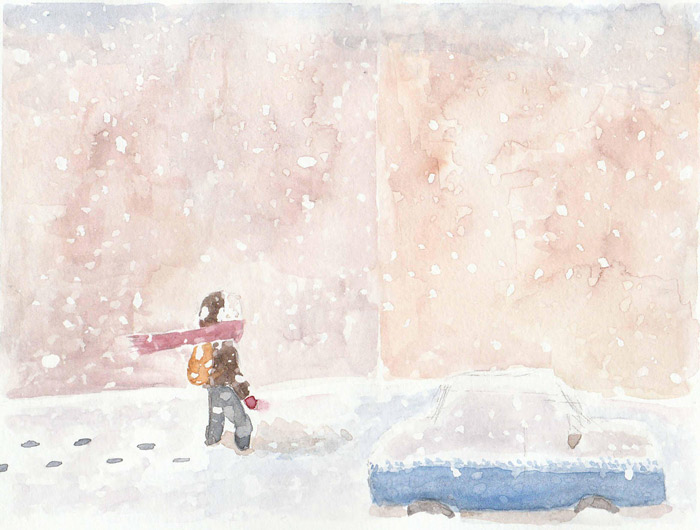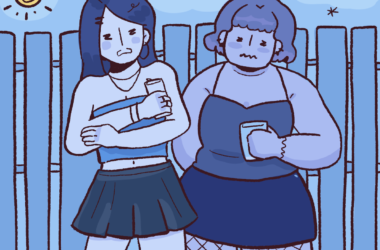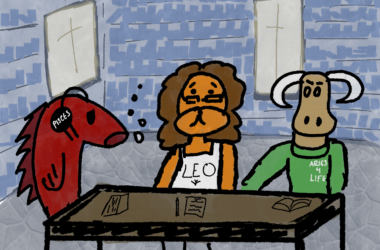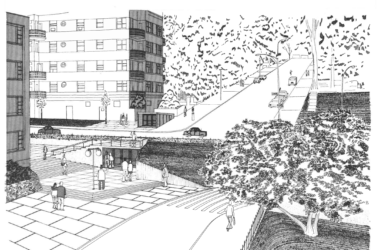On Feb. 13, McGill students awoke to the best kind of news imaginable: Classes were cancelled due to inclement weather. Although the university has now had two snow days in the past two years, before March 2017, McGill had not cancelled class in 19 years prior. Though in recent winters the McGill administration has been more willing to declare a snow day, it takes an extreme storm for the university to close its doors for the day.
In the past 20 years of class cancellations at McGill, the 1998 Ice Storm was perhaps the most dangerous event. This natural disaster consisted of three severe storms over the course of six days. It cost the governments of Quebec, New Brunswick, and Ontario a combined total of 1.49 billion dollars in insured damage cost and resulted in at least 25 deaths. Following the storm, McGill was closed for a week, due to power outages, and the campus was covered in ice. Berkeley Kaite, an associate professor in the Department of English, remembers arriving at campus only to be told that the university would be closed.
“It was the first or second day of classes when the storm started,” Kaite said. “Not only did McGill close, but the whole city was shut down. It was eerie like a ghost town.”
While Kaite was fortunate to have power at her home, she noted that many people had to check into hotels that had generators to get access to electrical heating. Roads were closed off to traffic, and cars were stuck in the ice.
Some McGill students responded to this natural disaster through acts of charity—a group of law students coordinated donations and deliveries of essential supplies to areas of Quebec that were hit hardest during the storm. The event also resulted in new research projects at McGill: Project Ice Storm studied the long-term effects of prenatal stress caused by the environmental disaster, and is led by Dr. Suzanne King. McGill has not seen such an intense storm since.
Following the events of 1997, snow storms came and went, but McGill’s doors stayed open. It was not until recently that McGill cancelled classes twice due to blizzards: the first time in 2017 and the other in 2019. While neither of these instances were as extreme as the 1998 storm, the blizzards nonetheless posed a challenge to both commuters and those who walked to class, as roads and sidewalks were impracticable. Owen Quinn, U1 Engineering, observed that while students love to complain about bad weather, city employees worked hard to clear the paths for vehicles and students.
“McGill’s campus isn’t that big compared to other schools,” Quinn said. “But I imagine it takes a lot of work to clear that much snow in a short amount of time.”
The frequency of class cancellations in recent years may indicate that McGill is more seriously considering students who do not live within walking distance of campus. Paul Orasanu, U2 Engineering, commutes to campus and was relieved that he did not have to take the bus that day.
“Living in the West Island, it takes me almost an hour and a half to get to campus on a good day. That time can double with poor weather or traffic,” Orasanu said. “It’s nice to know that McGill doesn’t only think about its near-campus students when making these decisions.”
The snow day not only spared students from commuting in poor weather conditions, it also provided them with a small break during midterm season. Whether they spent the day studying or binge-watching Netflix, students had the opportunity to relax at a stressful time in the school year.
“I had midterm on Thursday [Feb. 14], so that extra day for studying definitely saved my grade,” said Quinn. “And, I felt much less guilty sleeping through my alarm for my morning class.”
Students at McGill who have experienced both of the past two snow days can consider themselves lucky. The 19-year gap between the 1998 Ice Storm and the blizzard of 2017 means that thousands of McGill students graduated without enjoying a single snow day.
“Snow days are so rare at McGill that [professors] are quite surprised when school is cancelled,” Kaite said. “[This snow day] felt special, like I was in fifth grade again.”









